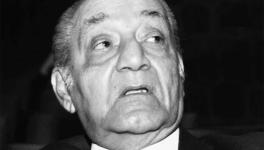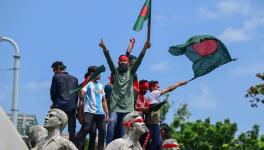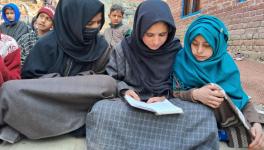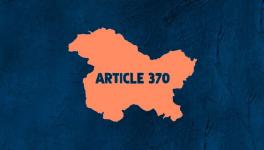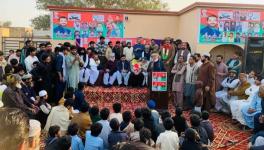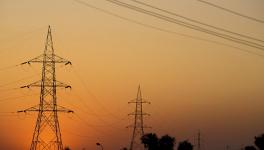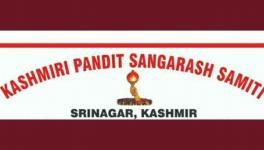Militarist Diplomacy: India Revives Pakistan in Kashmir
The gyrations---passing for diplomacy---over the last several days has done extensive damage to Indian foreign policy. In the short term the gentlemen in the Prime Ministers Office might be congratulating themselves for having ‘taught Pakistan a lesson” on terrorism, but the more discerning individuals in the government including the Ministry of External Affairs have probably realised the folly of a militaristic approach that at the end, has not yielded even one ‘credit’ for India.
Look at what happened to understand what has happened. There was no back channel established. And bilateral relations with Pakistan, always sensitive and fragile at the best of times, were used for grandstanding aided and abetted by an equally ignorant media that lives off the moment. No back channels were established. The result was that issues like Kashmir and Terrorism, the ‘core’ for both Pakistan and India respectively, were left to be battled out in the spotlights.
Of course Pakistan had lost the first round in Ufa insofar as its military and public opinion was concerned when Prime Minister Nawaz Sharif and his foreign secretary agreed on a document where it was clearly stated that the National Security Advisors would meet on terrorism. Kashmir was left out of the document, and the meetings between the BSF and Pakistan Rangers as well as between the Director General Military Operations of both sides were all to be about peace on the border, and ceasefire violations. Minister of External Affairs Sushma Swaraj was right in pointing out that the NSA talks were on Terrorism and not Kashmir in the specific sense of the word. And that Sharif, faced with flak on his return from Ufa, was forced to bring Kashmir back on the agenda which was acceptable to India as part of the overall composite dialogue, but not for the purpose of the NSA talks.
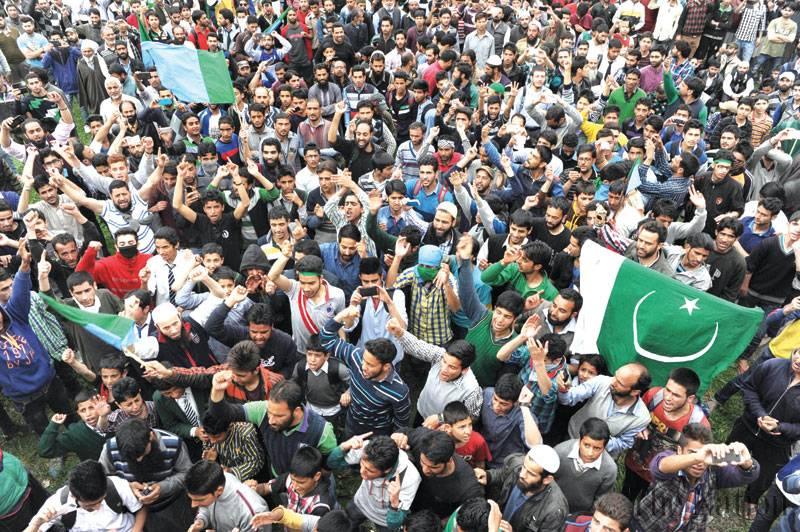
Having said this, governments in power are expected to be directed by a sense of continuity. And once it was clear---as it was immediately after the Ufa meet---that Sharif and his government in Pakistan would not be able to move away from Kashmir, at least in the public realm, India could and should have used the back channels to establish the rules of the tango as has been done any number of times in the past.
But first the question that New Delhi had to ask itself and answer was: Do we want the talks at all? If no, then of course all that has happened in the past days is very much on line. But it could have been achieved without the dangerous fallout that will be discussed in this report, by a cancellation at the onset. With again an agreed on excuse that could have alleviated the repercussions on Kashmir for India, and saved face instead of the gyrations that ended in a tense stand off, acrimony, and a flow of bad blood.
If yes, then all that has happened is exactly what bad diplomacy is about. From both sides but one would tend to blame India more as in the past, being a bigger country and a democracy to boot, it is the governments of India that have really charted out the course of bilateral relations. Any diplomat will confirm this.
So all that could go wrong did, either deliberately or involuntarily it is for the governments to say. one, no back channels were established; two, late responses by both sides amidst heavy fist swinging; three, accusations and over the top allegations; four, accusations followed by ultimatums on the eve of the talks-- a recipe for disaster as it hardened positions, led to militaristic posturing, and allowed the hardline constituencies on both sides to subsume government. Perhaps that was the intention as experts and citizens believe, perhaps not as the governments insist.
So what has gone wrong for India? In any diplomatic initiative, the success is determined in what is gained. India has certainly not gained an inch on terrorism, as the dossiers, the arguments, the rhetoric is just a repeat of all that has happened before. There was nothing that was said or given to the Pakistan government by New Delhi that has not happened before by other governments, including BJPs own Prime Minister Atal Behari Vajpayee. So not a word was said now on terrorism, not a fact more was provided by the government, it was all reiteration in the public space. And this reiteration, strident and backed by loud media, took place just before the NSA talks when usually both governments----in the past---lower their tones, and actually work to ensure the talks do take place. So at the end there was nothing really gained, as Pakistan clearly was not listening any more than it had listened in the past, and the result was that eventually the talks were called off. By whom is immaterial, though somehow this had become a moot point between the governments of India and Pakistan for some strange reason.
Nothing gained on terrorism, except saying what we have said before. And what is known to the world. But in the process major losses in Jammu and Kashmir.
Kashmir Valley under the young generation had moved out of Pakistan’s yoke for the first time since independence. This for even intelligence chaps handling Kashmir, was seen as a major achievement and a window of opportunity to win over ‘hearts and minds’ with an extensive reaching out, that was not limited just to economic packages.There was a visible rejection of Pakistan, and while the alienation with India had not ended, there were many strategic advantages for New Delhi in the former. The foremost being of course that the space in the Valley for Pakistan was now severely restricted, with the younger generation hostile and angry.
The Kashmiri separatist leaders were also divided at that point in time, but bad politics by earlier governments had virtually pushed some of them who had been looking at New Delhi for solutions to the Islamabad camp. However, the pro-Pakistan forces in Kashmir were quieter than ever before simply because of the ground pressure that was not willing to listen to that position being articulated any longer. Protests carried banners of “no India, no Pakistan’ with considerable concern in Islamabad about its dwindling constituency in the Valley. The mood had swung, but while some of the more astute officials had taken note of the fact, they were unable to convince the Congress government and then Chief Minister Omar Abdullah to strike home while the iron was hot. In that reach out through aggressive pro-people schemes that were able to answer at least some of the aspirations of the younger generation in Kashmir.
The year 2010 saw a large number of deaths in Kashmir with over 120 young boys killed by the police in a matter of weeks. This was a turning point for the young insofar as India was concerned, in that the hostility reached new levels. However, the anger towards Pakistan remained and this was seen as a plus point by those trying to persuade the Indian political class to open doors and not shut them. The separatist leaders too were keen to begin a dialogue but the Manmohan Singh government was unable to respond, remaining under the pressure of the BJP that was in opposition at that time. Chief Minister Omar Abdullah proved to be not just incapable, but also disinterested in the state he had been elected with great hope, to govern.
The BJP has reversed the clock entirely. And with its diplomacy this time around has given the Kashmir floor entirely to Pakistan. Islamabad was able to use this to its advantage, with NSA Sartaj Aziz raising the pitch substantially at his press conference just before Minister Swaraj spoke out on terrorism. The message sent out to Kashmir was that Pakistan was willing to jettison the dialogue on Kashmir, first when the foreign secretary level talks were cancelled because of the invitation by the High Commissioner to India to the Hurriyat leaders; and this time because of the government of India’s refusal to discuss the issue despite it being on the composite dialogue.
In plain language the message read as, “Pakistan is committed to Kashmir. Pakistan will not have talks with India without Kashmir. Pakistan will be back on the international stage raising the issue of Kashmir. Pakistan will not give up on the people of Kashmir or its leadership which is the Hurriyat.”
All that New Delhi had claimed through the diplomacy of peace where it had actually silenced Islamabad, and prevented it from posturing on Kashmir, has been lost in one stroke of amazing poor diplomacy. One of the reasons why the Kashmiris were angry with Islamabad was its failure to involve them or even at times speak for them. Except for the occasional meetings between the Kashmiri separatists and leaders from Islamabad---that had yielded little but a cup of tea over the years---in the view of the ordinary Kashmiri, Pakistan had done little for the ‘cause.’ In fact it was not even insisting they be included as the third party.
Now even the last has been handed over to Pakistan on a platter by the Indian government. Minister Swaraj kept referring to the Kashmiris being brought in as the ‘third party’ by Pakistan when actually Aziz was doing little more than the established tokenism of meeting the Hurriyat leaders as a token gesture. This had been allowed by earlier governments after an assessment that it meant little in real terms, and did not strengthen Pakistan’s clout in Kashmir, in fact quite the opposite. But this time Minister Swaraj insisted that NSA Aziz was bringing them in as a ‘third party’ when this was far from the case.
Pakistan has been revived in Kashmir, and its clout now will again be very visible. The Pakistan flags that were being flown as little more than an irritant till recently, will be waved in the Valley with more fervour and support now. This is a given, whether the BJP likes it or not. Also as Aziz said, Kashmir would be on top of its international agenda and that it will raise it from the rooftops as it were. India had been able to lower this rhetoric as well with the carrot of the composite dialogue that both countries had placed as a desired objective. Now with the hardline evident from India, Pakistan can be expected to pull out all the plugs and internationalise the issue of Kashmir as never before. This will get it more support within the Valley that has clearly turned and is looking at Islamabad with renewed interest.
Meanwhile the Government of India can busy itself answering the question whether all this will foster terrorism, or defeat it? Loud talk, threat of war, macho declarations have never defeated the armed non-state actor as the US and Israels policy in West Asia has proven; it is talks, dialogue, peace that isolates and defeats terrorism as history has proven.
Courtesy: thecitizen.in
Disclaimer: The views expressed here are the author's personal views, and do not necessarily represent the views of Newsclick
Get the latest reports & analysis with people's perspective on Protests, movements & deep analytical videos, discussions of the current affairs in your Telegram app. Subscribe to NewsClick's Telegram channel & get Real-Time updates on stories, as they get published on our website.









